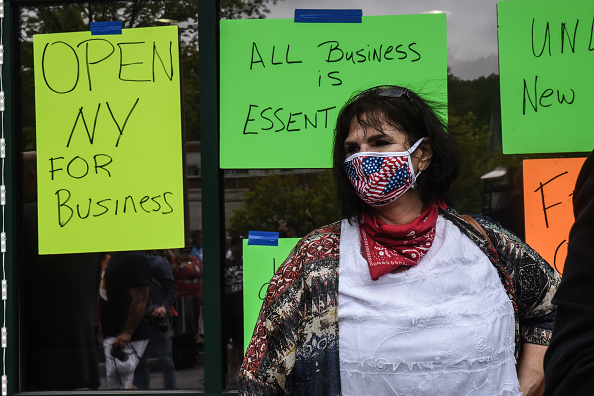2 startling graphs illustrate how nervous Americans are about the future of the economy


A free daily email with the biggest news stories of the day – and the best features from TheWeek.com
You are now subscribed
Your newsletter sign-up was successful
April was a month of historic increases and decreases due to the coronavirus outbreak.
On Friday, the government reported that consumer spending in April plunged 13.6 percent from the month prior, which Bloomberg says is "the sharpest drop in Commerce Department records back to 1959." Meanwhile, the personal savings rate, which describes the amount of a person's disposable income that they are putting into savings, hit 33 percent in April, "by far the highest since the department started tracking in the 1960's, and [surpassing the] consumer savings during the Global Financial Crisis," CNBC reports.
The high personal savings rate, combined with the extremely low consumer spending, reflects Americans' jitters about spending money during the outbreak, while the economy is in turmoil. Additionally, The New York Times credits some of the money-hoarding to the fact that "the $600 per week in extra unemployment benefits that have allowed tens of millions of laid-off workers to pay rent and buy groceries will expire at the end of July."
The Week
Escape your echo chamber. Get the facts behind the news, plus analysis from multiple perspectives.

Sign up for The Week's Free Newsletters
From our morning news briefing to a weekly Good News Newsletter, get the best of The Week delivered directly to your inbox.
From our morning news briefing to a weekly Good News Newsletter, get the best of The Week delivered directly to your inbox.
A certain amount of the stagnation is also due to the simple fact that there are fewer opportunities to be spending money in the first place, with so much of the country still shutdown. Still, "the paradox is that if everyone across the broad economy is hunkering down, that only makes the recession worse," Marc Odo, portfolio manager at Swan Global Investments, told CNBC.
Personal income, meanwhile, actually rose 10.5 percent in April, a record boost due to the federal stimulus payments and unemployment benefits, while economists had expected a decrease of 2.1 percent, according to MarketWatch. Jeva Lange
A free daily email with the biggest news stories of the day – and the best features from TheWeek.com
Jeva Lange was the executive editor at TheWeek.com. She formerly served as The Week's deputy editor and culture critic. She is also a contributor to Screen Slate, and her writing has appeared in The New York Daily News, The Awl, Vice, and Gothamist, among other publications. Jeva lives in New York City. Follow her on Twitter.
